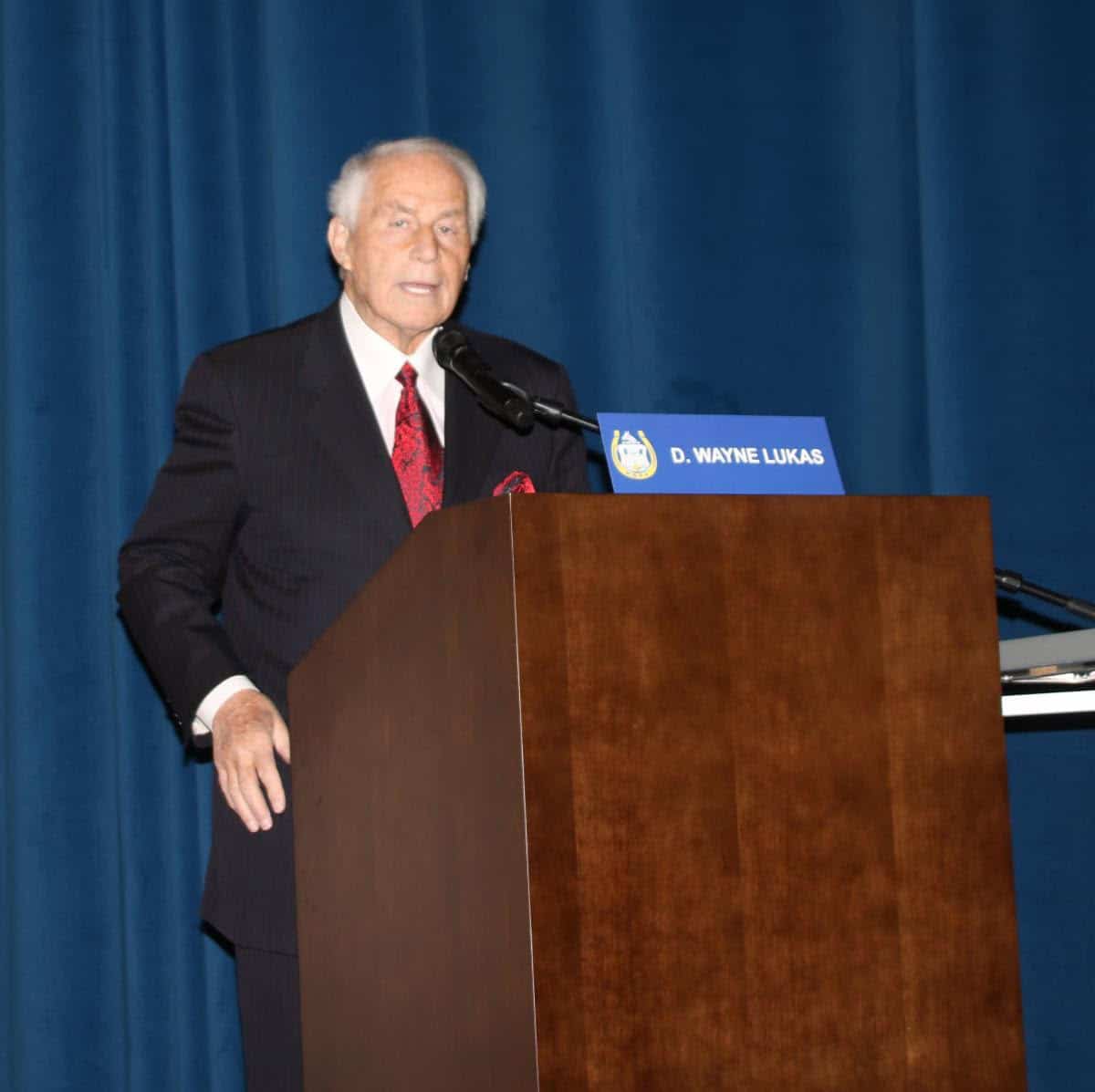Same Mission, New Approach on Medication
Blood-Horse
Though the Association of Racing Commissioners International remains a member of the Racing Medication and Testing Consortium, it intends to take the lead role in gathering the information needed to set medication policies.
RCI in December proposed a merger with the RMTC, a group of more than 20 industry stakeholders, but the RMTC declined. RCI then formed a new scientific advisory committee that ultimately will make recommendations for model rules.
RCI president Ed Martin shed more light on the reasons for the move Feb. 7 during the National Horsemen’s Benevolent and Protective Association winter convention in Carefree, Ariz. He said RCI and its racing commission members are the only “independent entities” in pari-mutuel racing with the authority to license, enforce, and adjudicate.
“The RCI remains a member of the RMTC and will continue to rely on its lab accreditation (program),” Martin said. “We will continue to take policy recommendations from the RMTC as we would any other group. An important difference is sometimes lost: The RMTC makes recommendations, not rules.”
When the United States Trotting Association defected from the RMTC last year because it believes there should be separate regulations for use of clenbuterol and corticosteroids in Standardbreds, RCI, which regulates all racing breeds, couldn’t rely on just the RMTC for recommendations, Martin said.
“There were also questions about the process and some recommendations, which caused a certain degree of a loss of confidence,” Martin said. “Whether it is deserved or undeserved is irrelevant. Everyone has a view and a voice, and they should not be suppressed in any form.”
Under RCI, the scientific advisory committee, along with regulatory veterinarians and individuals that focus on drug testing and practices, will form model rules. Martin said RCI also “envisions a greater focus on emerging threats” for which tests will need to be developed.
“It’s important for people to participate in the model rules process,” said Martin, who noted RCI will soon be able to field comments on its website. “Our agenda is pretty simple—just do the right thing.”
The RMTC will remain intact, and in December said it plans to work with RCI “to further the mission of ensuring fairness and integrity of racing and the health and welfare of racehorses and participants, and to protect the interests of the racing public.” RMTC chairman Alex Waldrop at the time noted the RMTC led the way in creation of the National Uniform Medication Program.
During the Feb. 7 medication forum, Dr. Clara Fenger, a Central Kentucky-based equine practitioner and secretary of the North American Association of Racetrack Veterinarians, broached the topic of model medication rules, in particular the list of 26 drugs on the Controlled Therapeutic Medication Schedule. She questioned the validity of the published testing threshold levels for many of the substances.
That, coupled with testing that is so sensitive it can detect parts per quadrillion of a substance, makes it difficult for horsemen and veterinarians to care for racehorses for fear of sanctions, Fenger said.
“I don’t know what we’ll be able to use to (therapeutically) treat horses,” she said. “Our vet trucks will basically be bicycles.”
Martin hinted that the reason some states with the uniform medication policies in place are seeing spikes in positives while others are not is that labs aren’t testing uniformly.
“We have a very aggressive drug-testing program and only a small percentage of positives,” Martin said. “The equipment is so sensitive, yet it’s interesting that labs say they can’t find anything. Those two arguments don’t reconcile themselves.”
As for the overall uniform medication policy, Martin said it “makes a lot of sense,” and that various issues shouldn’t derail it. “We could argue for days whether the speed limits are correct, but it was in the interest of horsemen to have some degree of uniformity,” he said.
Ohio HBPA executive director Dave Basler, who is the National HBPA liaison with RCI, said the reformation of the RCI Scientific Advisory Committee “speaks volumes” that the system needed to change.
“It’s as close to a public admission the process needs improvement as you’re ever going to get,” he said. “Hopefully we’ll get this thing back on track.”
This all comes amid the backdrop of a push by some in the Thoroughbred industry for federal legislation to govern medication use, penalties, and testing. Brian Fitzgerald, an attorney who serves as the National HBPA lobbyist in Washington, D.C., said a bill could be introduced in Congress by the end of March.
Thus far, similar legislation has failed to win the support of a sufficient number of federal lawmakers.





